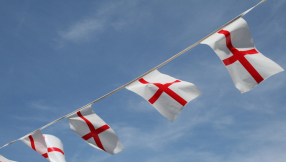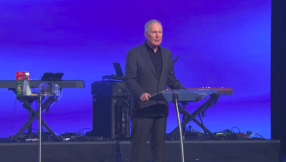
My, how the world has changed in recent days! A month ago, Corona was a beer, hand sanitiser was something that you only used when visiting hospitals, and some of us probably thought that Covid-19 was a planet in Star Trek.
Now, strong men are running to the end of the railway carriage at the sound of a sneeze and how you place a face mask is the new fashion issue. We hear discussions about how much pasta you need for two weeks' isolation and the best Netflix series for a fortnight's binge watch. Mediaeval theologians debated how many angels could stand on a pinhead; we discuss how many people can stand in a twenty-metre square room if everybody is expected to be a metre apart.
We watch the news with an increasing expectation of prophecies from the Book of Revelation. And it's a time of serious health risks - I nearly put my back out last week turning a loo door handle with my elbow. There are ever more creative replacements for the handshake or the affectionate hug - personally, I make the sign of the cross. It works well, unless I'm carrying a cup of coffee and my bag.
These are remarkable times indeed - whoever invented bacterial wipes must be rubbing their hands.
Now, you may consider all of the above insensitive or politically incorrect. If so, I apologise but it is written to make a point. Fear is out there and fear affects how we think and how we react. Out of fear, decent men and women are now unashamedly stealing medicinal handwash. Out of fear, people who would have considered themselves dignified citizens are grappling with each other for the supermarket's last toilet roll. Out of fear, men and women are avoiding doing acts of kindness.
Fear distorts what we are, and what we are supposed to be. In the Bible we read the phrase 'perfect love drives out fear' (1 John 4:18) but the opposite is also true: 'perfect fear drives out love.' It drives a lot of other things out as well. Much that is wise is said at the moment about the virtues of handwashing and I am happy to endorse that wisdom. Yet in thinking about fear and morality it's interesting that the one celebrated biblical case of handwashing – that of Pontius Pilate at the trial of Jesus – involved a man failing to do what was obviously the right thing because he was in the grip of fear (Matthew 27:24). There's a lesson there.
What is interesting about our current mood is that it is exposing the nature of our morality. Morality – what we think and do about right and wrong – can be either an internal or an external thing. It can be profound – something that comes up from deep convictions inside us; or superficial because it's no more than the social conventions that we have adopted.
Yet it's times like this when the weakness of superficial morality is obvious. It is simply a veneer of behaviour: something so superficial that it disintegrates in the presence of fear. Only a morality that is deeply rooted down inside us, that is embedded in the heart, can survive the corrosion of fear. It is that profound morality that allows men and women in times such as these to show the courage, love, service and sacrifice that are needed.
To borrow a phrase from Psalm 24:3–4, 'Who may ascend the mountain of the lord? Who may stand in his holy place? The one who has clean hands and a pure heart.'
At a time like this, clean hands are vital but a pure heart even more so.
The Bible records that only hours before Jesus was arrested, he promised this to his disciples: 'Peace I leave with you; my peace I give you. I do not give to you as the world gives. Do not let your hearts be troubled and do not be afraid' (John 14:27).
That's the peace of a pure heart that is capable of resisting the pressure of fear. It's the peace that allows us to be stable, solid and caring whatever fears there may be. It's the peace we need now. May you and I be granted it.
Rev Canon J John is an evangelist and the director of the Philo Trust. Find him online at www.canonjjohn.com













